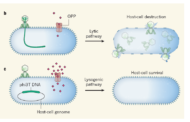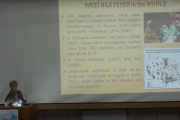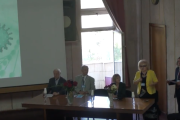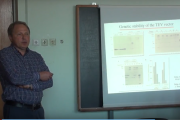 OSTP Issues “Recommended Policy Guidance for Departmental Development of Review Mechanisms for Potential Pandemic Pathogen Care and Oversight (P3CO)”.
OSTP Issues “Recommended Policy Guidance for Departmental Development of Review Mechanisms for Potential Pandemic Pathogen Care and Oversight (P3CO)”.
Today, the White House Office of Science and Technology Policy (OSTP) is releasing “Recommended Policy Guidance for Departmental Development of Review Mechanisms for Potential Pandemic Pathogen Care and Oversight (P3CO).” Adoption of these recommendations will satisfy the requirements for lifting the current moratorium on certain life sciences research that could enhance a pathogen’s virulence and/or transmissibility to produce a potential pandemic pathogen (an enhanced PPP).
Issuance of this policy guidance concludes the deliberative process launched in October 2014 by OSTP and the Department of Health and Human Services (HHS). At that time, OSTP and HHS asked the National Science Advisory Board for Biosecurity (NSABB), as informed by feedback from the National Research Council of the National Academy of Sciences, to provide recommendations to help shape the development and adoption of a new United States Government policy governing the funding and conduct of this category of research. While NSABB deliberated, such projects were placed on pause.
In May 2016, after thorough deliberation and extensive input from domestic and international stakeholders, the NSABB issued its recommendations. NSABB’s central finding was that studies that are expected to enhance PPP have potential benefits to public health but also entail significant risks. NSABB recommended that such studies warranted additional scrutiny prior to being funded. NSABB further recommended a Department-level, multi-disciplinary review and ongoing Federal and institutional oversight for this category of research. The recommended policy guidance that OSTP is issuing today will implement this approach.
In particular, the recommended policy guidance implements the NSABB’s call for a pre-funding review mechanism for certain research proposals. Toward that end, the policy guidance recommends that Federal departments and agencies establish appropriate review processes if they plan to fund studies anticipated to create, transport, or use enhanced PPP. In their reviews, Departments and agencies are asked to establish that such projects satisfy eight specified principles, to assess the projects’ risks and benefits, and to develop risk mitigation plans that are commensurate with the projects’ risks. They are also requested to report the outcome of any such reviews to the OSTP Director, along with the associated risk-benefit analyses and risk mitigation plans.
Projects that have been paused under the existing moratorium will now be reviewed utilizing a process consistent with the recommended policy guidance. Any projects that are determined suitable to proceed will do so with appropriate risk mitigation measures in place.
HHS is also committing to additional actions. First, HHS will ask the NSABB to continue to provide advice on the oversight of the creation, transport, or use of enhanced PPP. After HHS has reviewed its paused projects and made decisions about whether and how those projects will proceed, NSABB will review the process employed by HHS and provide advice, if necessary. Continued NSABB input will be essential to ensuring robust oversight of these projects. Further, discussing the department-level review process with NSABB will promote transparency and provide valuable forums for continued public dialogue.
Second, given that studies involving enhanced PPP are often described as “dual use” research, HHS is currently conducting a review of the implementation of policies for the oversight of dual use research of concern (DURC). HHS has asked NSABB to host a series of regional stakeholder meetings to gather information about the implementation of the DURC policies, and it will also solicit feedback more broadly related to their implementation.
Policy development in this important area of research will be ongoing. OSTP and HHS will continue to examine implementation of the policies and procedures that are developed to provide oversight of enhanced PPP, and they will continue to engage the public along the way.
Source: Obamawhitehouse












